Try Googling Ursula von der Leyen. As soon as you tap in the first name you get a choice of Ursula von der Leyen and the sci-fi writer, Ursula K. Le Guin. They top the list but they don’t have a lot in common, apart from one quirky fact. We’ll come back to that later. In terms of good luck, Ursula Gertrude von der Leyen has not had very much of it. She is a German politician and physician and, in spite of her nationality, she is a true child of Europe, having been born in the small leafy, rather posh Brussels municipality of Ixelles, known for its art deco buildings and expensive restaurants. She was elected President of the European Commission on 1 December 2019, and if ever anyone was passed a poisoned chalice, she was. Superstitious people might be looking around for the wax doll of her that some wicked witch has made and into which a large number of pins have been inserted, while her friends seek to withdraw some of them. She’s had even less good luck than the ever-charming, ever-polite Jacques Santer did during his unfortunate presidency. His problem was largely that he’d been lumbered with a handful of seriously awful commissioners. Von der Leyen has been largely fortunate in that respect; she has a fairly good team, in the main. However, she has faced some of the most intractable problems ever laid before any leader of the European Commission. I don’t envy her.
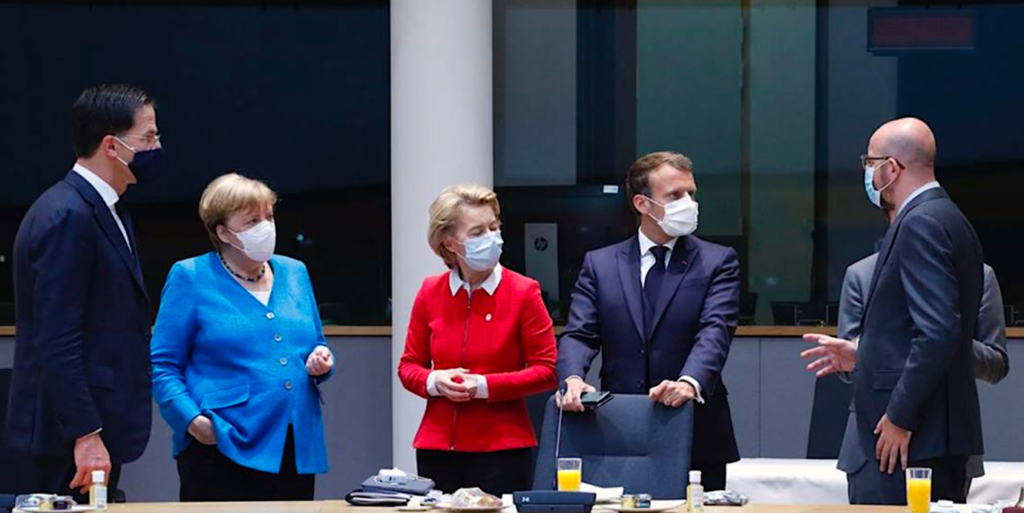
She was not an uncontroversial choice. A polyglot medical doctor, born abroad, she was raised to be bilingual in German and French. She married fellow-physician Heiko von der Leyen and they have seven children, so women’s issues and children’s issues have been important to her. She is an anglophile which must have made all the wrangling over the UK’s divorce rather painful for her. It presented an unprecedented problem, too. With Brexit delayed, she was obliged to ask the UK to nominate a temporary commissioner. There has to be a commissioner for every state, and with a 3 month delay in Brexit, it meant the UK was still a member when the time came to nominate a new Commission, Britain had to field a candidate; just one more headache for the unfortunate von der Leyen.
As minister for family affairs in Angela Merkel’s cabinet, she faced another set-back when she promoted the German government’s controversial moves to block access to on-line child pornography, earning herself the nickname ‘Zenursula’, ‘Zen” in this case being taken from the German word for censorship, zensur. She was quoted on Deutsche Welle as saying she was determined to tackle what she called: “a massive spread of child pornography on the Internet.” She made her position very clear: “We are no longer going to tolerate the fact that pictures of children being raped are massively accessed and distributed on the Internet in Germany.” It was an initially successful move, however, even if it didn’t please those opposed to any forms of censorship. It eventually failed because of an election that saw the Social Democrats, who supported the move, replaced by the Free Democrats, who were against any form of Internet control or restrictions on the web and had spoken against ‘internet blocking’ during their campaign.
Von der Leyen went on to serve as Germany’s Minister of Defence but has been widely seen by the German media and public as a weak one. The Politico website pointed out her disadvantages at the time she was picked for the top job at the Commission, highlighting the weakness of Germany’s defence capabilities, for which she was responsible.

“The Bundeswehr’s condition is catastrophic,” it reported Rupert Scholz as saying. He had served as defence minister under Helmut Kohl. “The entire defence capability of the Federal Republic is suffering, which is totally irresponsible.” So, hardly a glowing reference for someone about to take charge of the EU, which has been likened to being put in charge of a sack full of rats, and a sack with holes in it, too, while some of the rats are infected with the black death. It’s really not a nice job for a well brought up lady!
Britain’s The Spectator political magazine sees her as having the touch of death herself: whatever she gets involved with goes horribly wrong. It gave a few examples. “The German Army had to join a NATO exercise with broomsticks because they didn’t have any rifles. Its special forces became a hotbed for right-wing extremism. Working mothers were meant to get federally-funded childcare, to help fix the country’s demographic collapse, but it never arrived, and the birth rate carried on falling. Every child was supposed to get a hot lunch at school every day, but somehow or other it didn’t quite happen. There is a common thread running through the career of Ursula von der Leyen, the President of the European Commission. A series of catastrophic misjudgements, and a failure to deliver.” For those familiar with von der Leyen’s tendency to leave a trail of disaster behind her, the most recent events are being lumped together under the heading “here we go again”.
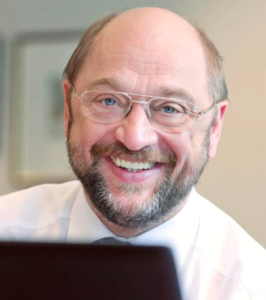
The Spectator quoted Martin Schulz, a gifted former president of the European parliament, who described her as unsuitable when she was first nominated: “‘Von der Leyen is our weakest minister,’ he said. ‘That is apparently good enough to head the European Commission.’” Spiegel did mention, in an article, that she was good at avoiding the blame for her catastrophes, which speaks of talent of a sort. She has also acquired something of a reputation for grandstanding since her arrival at the Commission. She gives rather grandiose speeches to hail her newest announcements, but they’re rather like Macbeth’s desperate assessment of life in general in the Shakespeare play that bears his name:
“It is a tale told by an idiot, full of sound and fury, signifying nothing”.
It is arguable that part of the problem stems from her being the first woman ever to head the European Commission. Despite fine words about equality and everyone having the same opportunities, in the days when I was a frequent visitor (which continued for several years), sexism wasn’t hard to find, and not only in the press bar. Yes, there have been incidents but it’s equally certain that she’s too often been given the rough end of the stick. Look at her recent visit to Turkey, a country where sexism is almost a religion (Islam is not of itself sexist, or at least not necessarily so, but a great many Turks – especially the country’s leader – are). VdL, as she’s referred to in Germany, has a big problem with Turkey and its very bossy President, Recep Tayyip Erdoğan: Europe needs Turkey to ease its problems with immigrants, but it doesn’t like the way Erdoğan does business, especially now that he has withdrawn Turkey – somewhat ironically – from the Istanbul Convention, which is designed to protect women from violence.
When she arrived , together with Council President, Charles Michel, for a meeting with Erdoğan, they were led through to a room where there were only two chairs. She cleared her throat to draw their attention to her lack of a seat, but Michel had rushed to the only one unoccupied and he wasn’t about to liberate it in her favour.
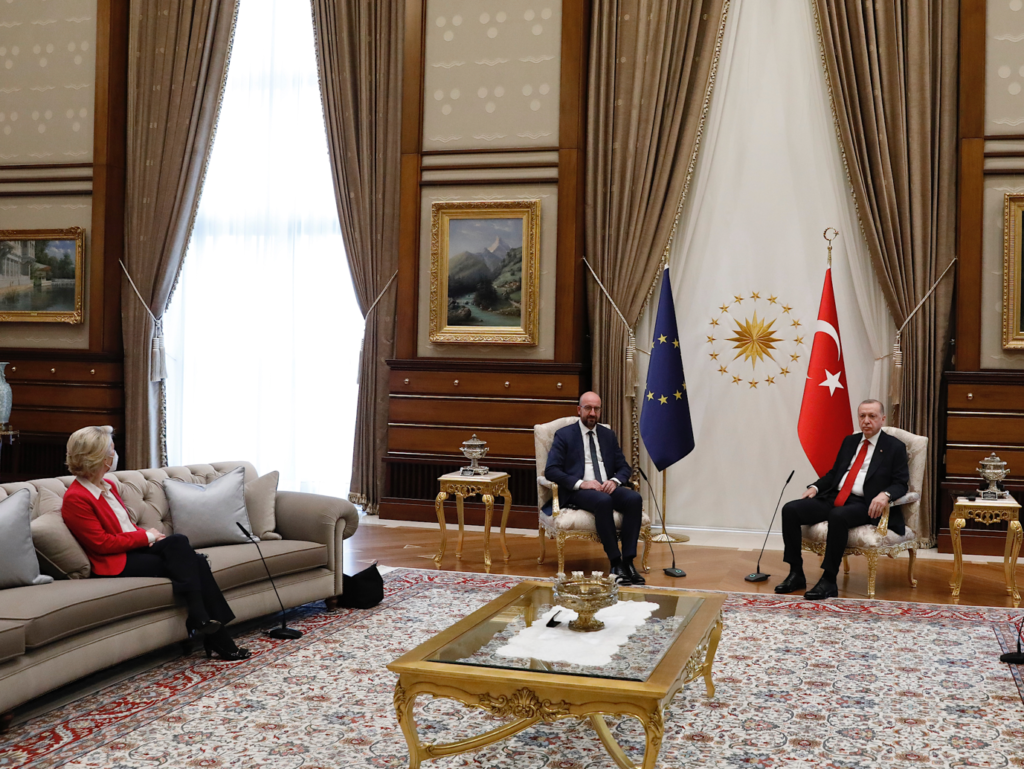
It was a very deliberate snub by Erdoğan, who has little regard for women, and exceptionally, unforgivably rude of Michel, suggesting to Erdoğan that he, and by extension the EU, shares his dark-ages views about women being inferior. It matters especially because women’s rights were among the items on the agenda. The incident drew widespread criticism of the two rude men, even from people politically opposed to von der Leyen. Socialist leader Iratxe Garcia Pérez said, “First they withdraw from the Istanbul Convention and now they leave the President of the European Commission without a seat in an official visit. Shameful.” While a Spanish member of the far-left GUE group in the European Parliament, Idoia Villaneuva, went further: “It is intolerable that the EU and Charles Michel allow Erdoğan, who has just removed his country from the Istanbul Convention against sexist violence, to discriminate in this way against President von der Leyen.” Not that Erdoğan will care; the comments come from women and he seems not to consider them important.
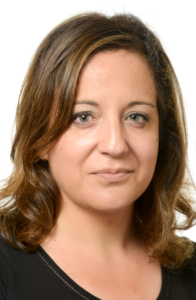

A spokesperson for von der Leyen later pointed out that the President should have had a seat of equal prominence to those used by Erdoğan and Michel, rather than having to find herself a place on a nearby sofa. Indeed she should, and if they’d been truly civilised both Michel and Erdoğan should have rushed to offer her theirs. As I said before, sexism isn’t hard to find in the EU and Michel seems to have adopted it, winning the EU prize for cruel sexism. We already knew what Erdoğan thinks of women.
BUT SHE’S A WOMAN…
As if inherent and persistent sexism isn’t a big enough obstacle, the EU already faced a financial crisis even before the SARS-CoV-2 virus came along to spoil the party by making it many times worse. The pandemic provided a financial shortfall that had to be made up, if Europe’s economy was ever to recover. Von der Leyen was accused of concentrating too hard on financial issues and not enough on the medical. It’s surprising, given that she herself is a doctor. As it is, by the time the Commission was authorised to acquire vaccines and actually got around to it, vaccines were in short supply. Was it von der Leyen’s fault? It’s fair to say she must accept a share of the blame. After all, she had described the arrival of the pandemic as “Europe’s moment”. It wasn’t. “We see the economic, fiscal and social fall-out across our Member States,” she said in a speech to the European Parliament in May 2020, just as the pandemic was beginning. “Divergences and disparities widen. Complex questions of sovereignty and burden-sharing have to be balanced. And so in front of us once again is that same binary choice. We either all go it alone; leaving countries, regions and people behind, and accepting a Union of haves and have-nots, or we walk that road together. We take that leap forward.” ‘Great on sentiment, weak on delivery,’ is likely to be the verdict of history.
The Politico website offers more censure than praise, too: “European Commission President Ursula von der Leyen has come under intense criticism for the mishandled vaccine rollout,” it writes. “To her credit, von der Leyen has acknowledged the EU’s vaccine rollout failures. In February, she said: ‘We were late to authorize. We were too optimistic when it came to mass production and perhaps too confident that what we ordered would actually be delivered on time.’” Her proposed €750-billion rescue plan for Europe’s businesses, known as “NextGenerationEU” (the Commission seems to dislike punctuation for some reason), has not even met universal approval, nor has it yet proved possible to dole out, if for unrelated reasons.

This is how Politico reported it: “Von der Leyen presented her proposal as the best possible package — €500-billion in grants; €250-billion in loans — but admitted those amounts, and even the overall size of the recovery fund, will be up for negotiation with the EU’s 27 heads of state and government, no easy task. The entire EU would issue bonds, guaranteed by national commitments to the bloc’s budget, and would repay the debt jointly, but this should not be viewed as ‘debt mutualization.’ This is a completely new concept and a new step forward,’ von der Leyen said at one point, adding: ‘The crisis is so huge, we have to take unusual steps.’” One unusual aspect is that the sum now mentioned in the Multi-Annual Financial Framework (MFF), designed to help Europe when Covid has gone, has now reached €1.8-trillion. The impossibility of getting out of this mess unscathed reminds me of a speech in Shakespeare’s Macbeth. “I am in blood stepped in so far,” says the eponymous anti-hero, “that should I wade no more, returning were as tedious as go o’er.” And even more costly, it seems.
There is the issue of going beyond talking to actually raising and distributing the money. Speaking in March 2021, the President of the European Central Bank, Christine Lagarde, warned against “procrastination” in getting money flowing from the fund.

Poland and Hungary had threatened it by objecting to the wording, which linked distribution rights to countries obeying EU law. Hungary and Poland do not, of course, but they did not want their reluctance to abide by EU law to affect how much they receive from the MFF or when. The compromise negotiated by Germany leaves the text unchanged but with a promise that it will not be used until the two allegedly law-breaking countries have had a chance to challenge it in the EU’s highest court. Not untypically for the EU, it’s a fairly clumsy compromise but at least it means the money can be disbursed.
In an interview on the European Union’s own website von der Leyen was upbeat, despite all that has gone wrong. “All 27 Member States, large or small, have access to a safe vaccine,” she said. “Just imagine the alternative, if some Member States had vaccines and many others none. That would have been a disaster for Europe. We bet on the right vaccines and invested massively in them. Three of these vaccines have already been approved worldwide, and two others should soon be added to the list.” Well yes, but the Commission took too long to start the vaccination ball rolling.
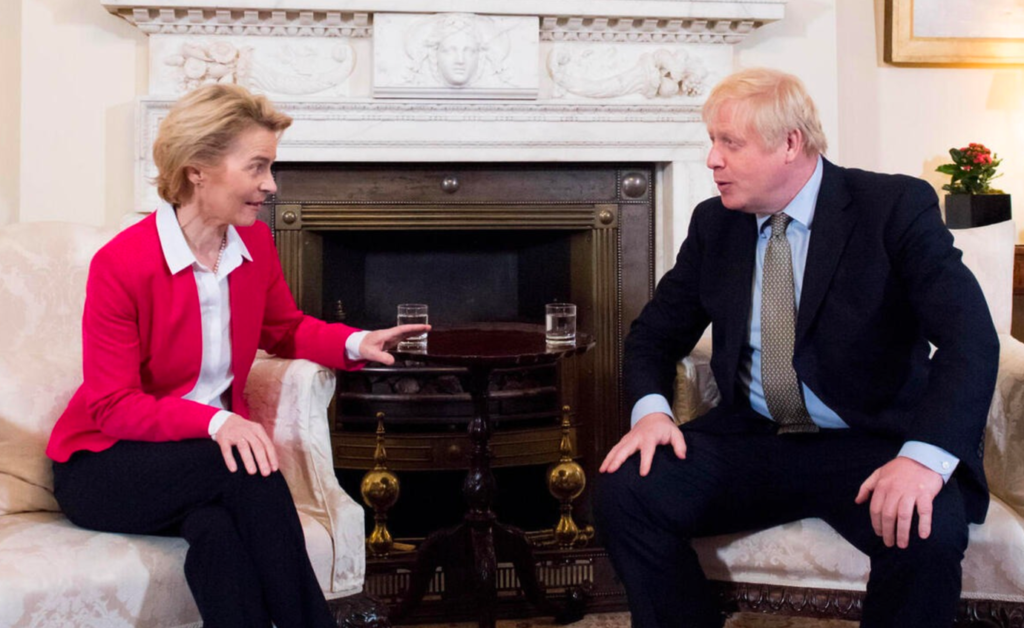
Von der Leyen is unshaken. “We were very thorough when it came to approval of the vaccines, which cost us time” she told the interviewer. “In that regard, the UK is four weeks ahead of us, that’s true. The reason is that the UK Government relied on emergency approval for completely new vaccines. That’s a faster way of doing things, but also a lot riskier.” Boris Johnson, it seems, is blessed with more good luck than von der Leyen. After all, if it could have all gone horribly wrong for him. Von der Leyen admits that by January 2021, she could see that not everything was going well. “Most EU countries were simply glad to be receiving the vaccine,” she said, ‘however, in Germany and Denmark the issue quickly became about there not being enough vaccines and that everything had been a failure – which is by no means true. Furthermore, we reacted rapidly by increasing our BioNTech order from 300 million to 600 million doses.”
OUTER SPACE FOR ALL! – OR ANY SPACE…
‘Vaccine nationalism’, the unseemly every-man-for-himself scramble for jabs that kicked in almost as soon as the first vaccines became available, has hampered the fair distribution of whatever vaccines were on the table. The Commission’s problem, argues the CapX website, was a penny-pinching attitude to the process about the prices being charged. CapX blames it on von der Leyen, although she has advisors and a small army of civil servants. “It should have already dawned on her that negotiating endlessly to get a lower purchasing price from BioNTech would mean that those who agreed to contracts earlier would get vaccines earlier. It should have been obvious too that ‘best effort’ contracts with AstraZeneca might cause problems when in conflict with other, more stringent contracts the firm has concluded with the likes of the UK. Instead, she talked about ‘global action’ and fighting a war of words against ‘vaccine nationalism’. The website is exceptionally hard on von der Leyen, arguably unfairly so: “There is little doubt that Ursula von der Leyen’s first year as the Commission President has been a massive failure that will cost many lives, many euros, and many livelihoods, with much of Europe likely stuck in lockdown for much longer than necessary.”
I recall from conversations I have had in the past with previous European Commission presidents that it’s never quite as simple as that. So, the circus performance goes wrong, the tent falls down, the clowns go on strike (hooray!) and the trapeze artists end up head-down in the clowns’ buckets of whitewash. Is it all the ringmaster’s fault? Not if the tent erectors went off for a drink halfway through, the clowns want to be paid extra for the trauma of having custard poured down their trousers and the trapeze artists got drunk before the show. How could the ringmaster have saved the day? Running the Commission and trying to get all 27 countries to work together is a bit like trying to herd cats. It’s a thankless task, even an impossible one, and if von der Leyen’s performance has sometimes seemed to be rooted more in appearance than in concrete achievement, no-one can say they weren’t warned. Remember those military broomsticks?
As I said at the start of this article, Googling Ursula von der Leyen, immediately throws up two candidates upon entering the first word: they are the subject of this article and the brilliant American fantasy and science fiction writer, Ursula K. Le Guin. Le Guin’s clever but controversial 1969 sci-fi novel, Left Hand of Darkness was the first of book by her that I read (and not the last, although it remains my favourite).
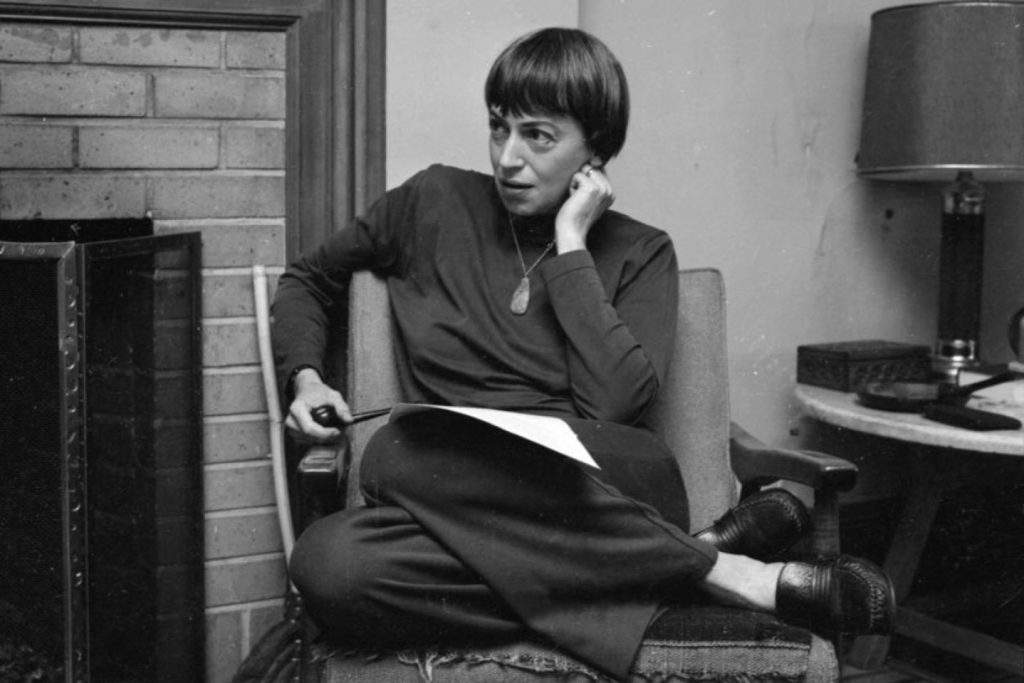
I was 21 at the time. In a strange sort of way, the book’s theme makes it pertinent to the problems our present-day Ursula is facing. In the book, an Earth-born man called Genly Ai is sent to a strange planet to try to persuade its divided leaders into joining a sort of planetary union called the Ekumen. Of course, it is science fiction: we have no way now or in any imaginable future of travelling the vast distances between solar systems, and looking at the state of our present Earth, I’m not sure that we could offer aliens anything that might conceivably appeal to them. We’re a pretty shameful example of supposedly sapient creatures. During his time on the planet Gethen, Ai is befriended by a politician called Therem Harth re ir Estraven, who helps him to escape across the icy planet’s even colder polar region. Many saw the book as a plea for and defence of feminism, which was really only starting to find its voice in the late 1960s. It was a wonderful time to be alive; I count myself very lucky to have spent my youth in the sixties and early seventies. It was a fun time. Despite the vast technological advances we’ve seen since then, this age in which we’re now living, especially in the COVID-19 pandemic, is not a wonderful time. Fun is scarce and elicits feelings of guilt. Genly Ai and Therem Harth re ir Estraven managed to cross the polar ice, however, both in extreme discomfort.
Despite the chair incident, which could not be blamed on her, von der Leyen’s assessment of the meeting with Erdoğan is positive, even if she may have said so through gritted teeth. “Turkey shows interest in re-engaging with the European Union in a constructive way” she told the media. “We have come to Turkey to give our relationship a new momentum. And in this respect, we had an interesting first meeting with President Erdoğan. And indeed, we discussed four areas in-depth in which the European Union and Turkey would both benefit from enhanced cooperation.” And all that despite the bad manners of Erdoğan and Charles Michel. It must have stuck in her throat somewhat to talk about the EU’s respect for equality and the need for Turkey to subscribe to it, too. “We are aiming for an honest partnership. And that means that a partnership between the EU and Turkey enables us to strengthen what brings us closer but also to be very frank and to address what divides us.” Obviously, an extra chair would have helped, too. “Today Charles Michel and I clearly underlined that respect for fundamental rights and the rule of law are crucial for the European Union,” she said. “This must be an integral part of our relationship. Turkey must respect international human rights rules and standards, to which by the way the country has committed itself – as a founding member of the Council of Europe.” Sadly, the Council has precious few means at its disposal to enforce compliance with its rules; Turkey isn’t the only country to ignore them totally.
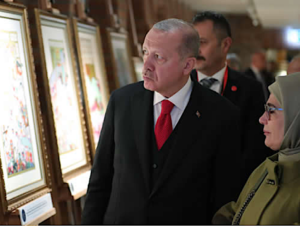
The EU is upset and angry over Turkey’s decision – or rather Erdoğan’s decision – to withdraw from the Istanbul Convention, of which Turkey was the architect and which the country pushed hard on reluctant members of the Council of Europe (the UK was one of the reluctant ones). The reason he gave was that it allegedly ‘normalised’ homosexual relationships, but Erdoğan has an odd attitude to human rights generally, although the EU is loath to raise the issue while Ankara is helping to solve its migrant problem. “We expect Turkey to stand by its commitments and deliver on them,” von der Leyen said, “this includes preventing irregular departures and it also included resuming return operations from the Greek islands to Turkey without any delay.” Turkey looks after almost 10-million Syrian refugees and Turkey’s recent hint that they need more money to do so is likely to result in extra cash. The EU can’t afford not to keep them on side. Again, their existence is not von der Leyen’s fault; I sometimes wonder how former Commission Presidents, such as Delors, Santer or Juncker would have handled the issue. Since the European Commission is involved, however, it’s inevitable that some of the blame will be heaped on it. The media, by and large, have an aversion to the Commission.
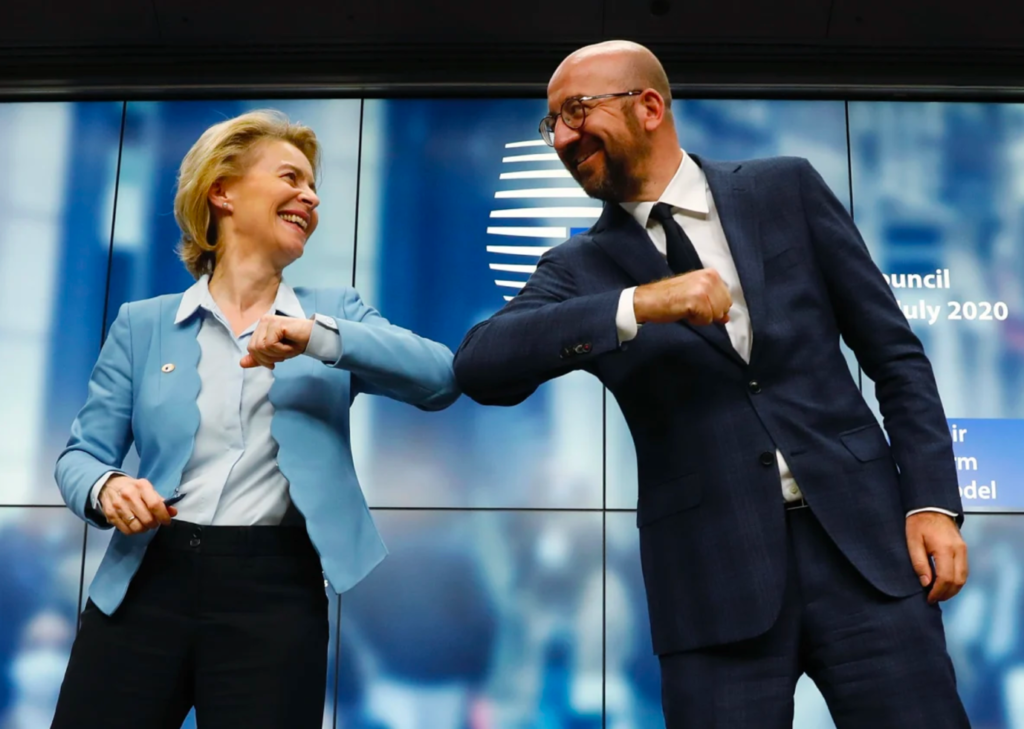
Compared with trying to preside over the European Commission, occupying the chair once filled by the remarkable Jean Monnet, herding cats sounds easy. Whatever the outcome, there were so many fingers in this particular pie that it’s impossible to say for sure who was at fault for any particular failing (there are quite a few to choose from). The British novelist Anita Brookner wrote in her 1984 book, Hôtel du Lac, “Good women always think it is their fault when someone else is being offensive. Bad women never take the blame for anything.” Ursula von der Leyen is not a bad woman. I think her record shows that she is an extraordinarily unfortunate one, however, who has made more promises than she’s been able to keep. She needs to remember the old adage “actions speak louder than words”, however eloquently spoken.

